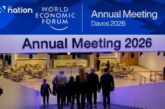OPINION
1.3 billion people still live in multidimensional poverty with almost half of them children and youth. Statistics show that 1.77 million Indians are homeless. Further, the true figure became larger in the post-COVID pandemic as many more people from the country’s lowest quarter got impacted.
Dr. Arvind Kumar*
Unequal opportunities including access to services, and gender inequality continue to prevail along with income inequality registering a sharp rise and the gap between the rich and poor gets even wider each passing year. While ruling out the inevitability of poverty and inequality, experts opine that poverty and inequality are the results of deliberate decisions or inactions that disempower the poorest and marginalized in our societies. Besides, the prevalence of social exclusion, structural discrimination, and disempowerment has made it cumbersome for people trapped in extreme poverty to escape this vicious circle. Further more, the people trapped in the vicious circle of poverty have also to confront climate emergency which is often followed by more frequent occurrences of natural disasters and environmental degradation, culminating in the destruction of their homes, crops, and livelihoods.
The year 2022 marks the 35th anniversary of the World Day to Overcome Extreme Poverty and the 30th anniversary of the International Day for the Eradication of Poverty. Nonetheless, this Day marks the solemn occasion to honour the millions of people trapped in the vicious circle of abject and extreme poverty and their day-to-day courage and acknowledges the essential global solidarity and shared responsibility the world holds to eradicate poverty and combat all forms of discrimination. This Day affords an opportunity to acknowledge the effort and struggle of people living in poverty, a chance for them to make their concerns heard, and a moment to “recognize that poor people are the first ones to fight against poverty. But is it enough? Are we able to eradicate poverty and restore people’s dignity?

Dignity is a concrete notion that is to be shared by each and every individual, especially when a proportion of the global population is reeling under persistent poverty in different parts of the globe, and are often confronted with denial of dignity and respect. Undoubtedly, multiple international declarations on human rights and respective constitutional or other legal documents in each nation refer to provisions that seem to grant a semblance of guarantee to individuals to enjoy freedom and make informed choices, and to participate meaningfully in the decision-making processes that impact their lives. Nevertheless, such lofty provisions mostly remain on paper and seldom get translated into meaningful action, especially for the poor.
It is a notion that those at the bottom of the economic ladder lack dignity, and it is the job of the rest of the world to help give it to them. But that is actually a very limited interpretation of a word that, if understood properly, could mean fundamental changes to our ways of working, and the overall story we are trying to tell. The thing about dignity, and the reason it is a transformational concept, is that it knows no social, economic, gender or ethnic barriers. Some of the poorest people are the most dignified. And some of the richest lack dignity. In a world of poverty and injustice, who are the undignified? Is it the poor or the rich? Is it the victim of violence or the perpetrator? Is it those who lose out to corruption or the corrupt official?
Millions of people worldwide live in intolerable slum conditions, without access to minimum essential levels of clean water, sanitation, health care, security or education. When people establish their own housing solutions they are often torn from their homes and left homeless. The prevalent reality makes it discernible that 811 million people do not have enough food and 44 million are at risk of sliding into famine, two billion people still live without safe drinking water, and 3.6 billion people are unable to avail of safely-managed sanitation services, and 1.3 billion people still live in multidimensional poverty with almost half of them children and youth. Statistics show that 1.77 million Indians are homeless. Further, the true figure became larger in the post-COVID pandemic as many more people from the country’s lowest quarter got impacted. In many places women are denied equal rights to their homes and land, and Indigenous peoples’ land rights are ignored in favour of big business. We have to respond to humanitarian crises like natural disasters, conflict and the effects of climate change. We have to save lives, relieve suffering and help rebuild livelihoods and communities to allow women and men in the poorest and most vulnerable communities survive and recover from crises and to live in a safe and secure environment.
As we redefine development in this year of transition to the new, more inclusive sustainable development goals, let me throw this into the ring. Development is dignity or it is nothing. The opposite – development without dignity – is not worth having.
*President, India Water Foundation



